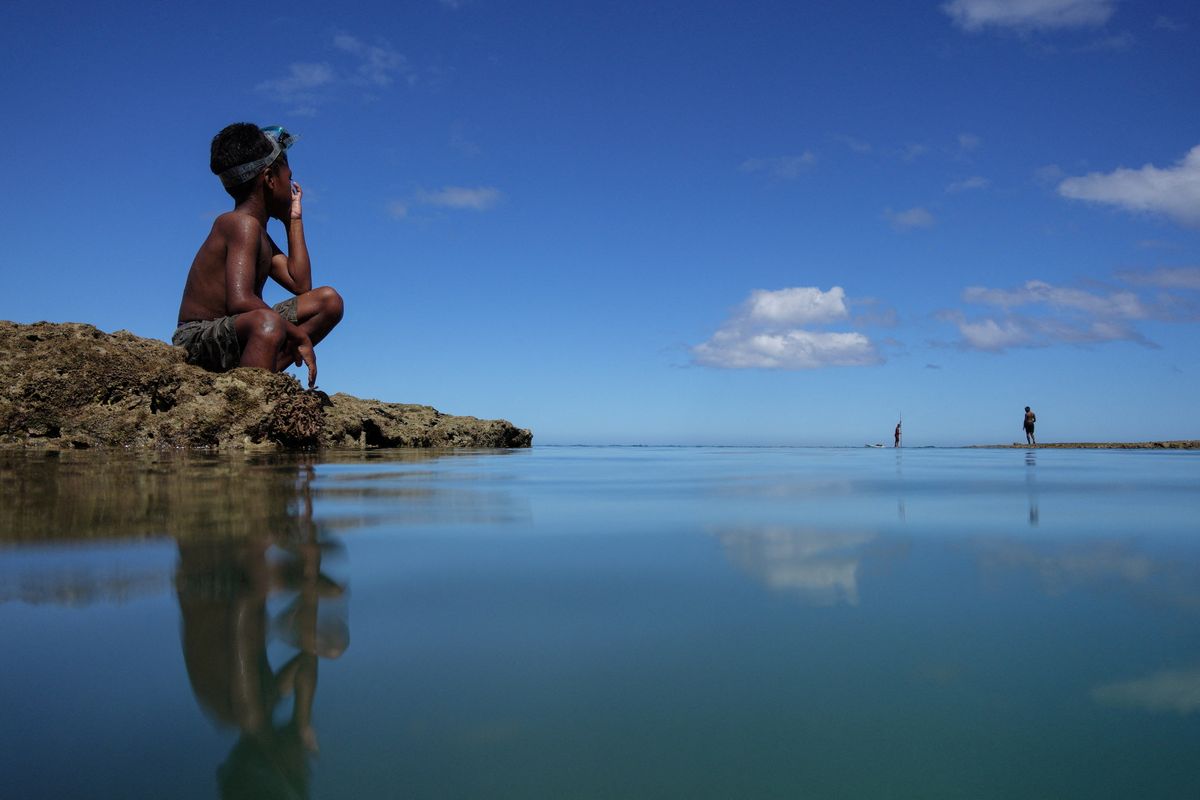UN treaty paves the way for high seas protection
There's this huge part of the ocean called the high seas, and it's basically the Wild Wild West of the sea world.

A few minutes every morning is all you need.
Stay up to date on the world's Headlines and Human Stories. It's fun, it's factual, it's fluff-free.
The backstory: There's this huge part of the ocean called the high seas, and it's basically the Wild Wild West of the sea world. This is because no country has complete control over it. Surprisingly, only 1% of these massive areas are currently protected. Now, why is this such a big deal? Well, the oceans are actually responsible for giving us most of the oxygen we breathe and helping to combat global warming by absorbing harmful carbon dioxide. Plus, they're home to all sorts of amazing marine life, from microscopic organisms to majestic creatures. But since the high seas are like a no man's land, it takes a global effort to keep them safe.
Now let's talk about what was going on before this. The closest thing we had to protecting the high seas was the UN Convention on the Law of the Sea. It kicked off back in 1994, but it only applied to the seas within a country's territory or exclusive economic zone. That means about half of our planet's surface and two-thirds of the ocean were left unregulated when it came to preserving biodiversity.
More recently: Last December, world governments gathered in Montreal and pledged to protect 30% of important land and water areas for biodiversity by 2030. It's called the “30 by 30” accord. Then in March, negotiators from over 100 countries got together to work on a UN treaty called the Biodiversity Beyond National Jurisdiction (BBNJ) treaty. It's all about protecting the high seas. Not only does it provide strong protection for those vast waters, but it also makes sure any proposed activities out there go through strict environmental impact studies. The negotiators went through five rounds of talks, but they sealed the deal just one day after the original deadline.
The development: Now, the UN has officially adopted the first-ever treaty to protect the high seas and preserve marine biodiversity in international waters. UN Secretary-General Antonio Guterres made the announcement, and it's the result of nearly two decades of effort.
According to Guterres, this treaty is going to inject a fresh wave of energy into global ocean conservation efforts. And guess what? Delegates from 193 member nations seem to agree. This is a groundbreaking moment because, until now, there were no international laws governing the high seas. The treaty covers important stuff like sharing benefits from marine genetic resources beyond national jurisdictions, creating protected areas on the high seas and establishing a framework for assessing environmental damage.
Key comments:
"To prevent a cascading of species extinctions, last year we universally agreed to the Global Biodiversity Framework's target of protecting 30% of the planet's land and sea by 2030," said Peter Thomson, the UN Secretary-General's Special Envoy for the Oceans, to CBS News. "To reach that target, we'll have to establish Marine Protected Areas in the High Seas, and happily the BBNJ Treaty will give us the legal means to do that."
"Roughly two thirds of the Earth's oceans lie beyond national boundaries in an area known as the 'high seas' — yet only about 1% of that largely unexplored expanse has been protected. This year, nearly 200 nations finally agreed on the first treaty to protect the high seas," tweeted the Conservation International organization.
"With the agreement on the UN High Seas Treaty, we take a crucial step forward to preserve the marine life and biodiversity that are essential for us and the generations to come," said Virginijus Sinkevicius, the European Commissioner for Environment, Oceans and Fisheries, last December.
“Over one-third of fish stocks are being harvested at unsustainable levels,” said UN Secretary-General Antonio Guterres. “And we are polluting our coastal waters with chemicals, plastics and human waste.”




Comments ()